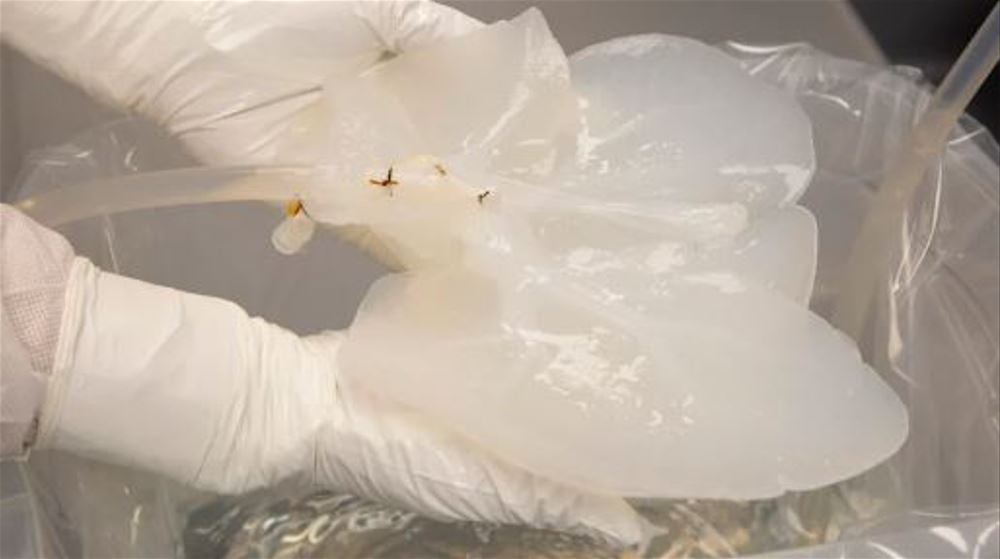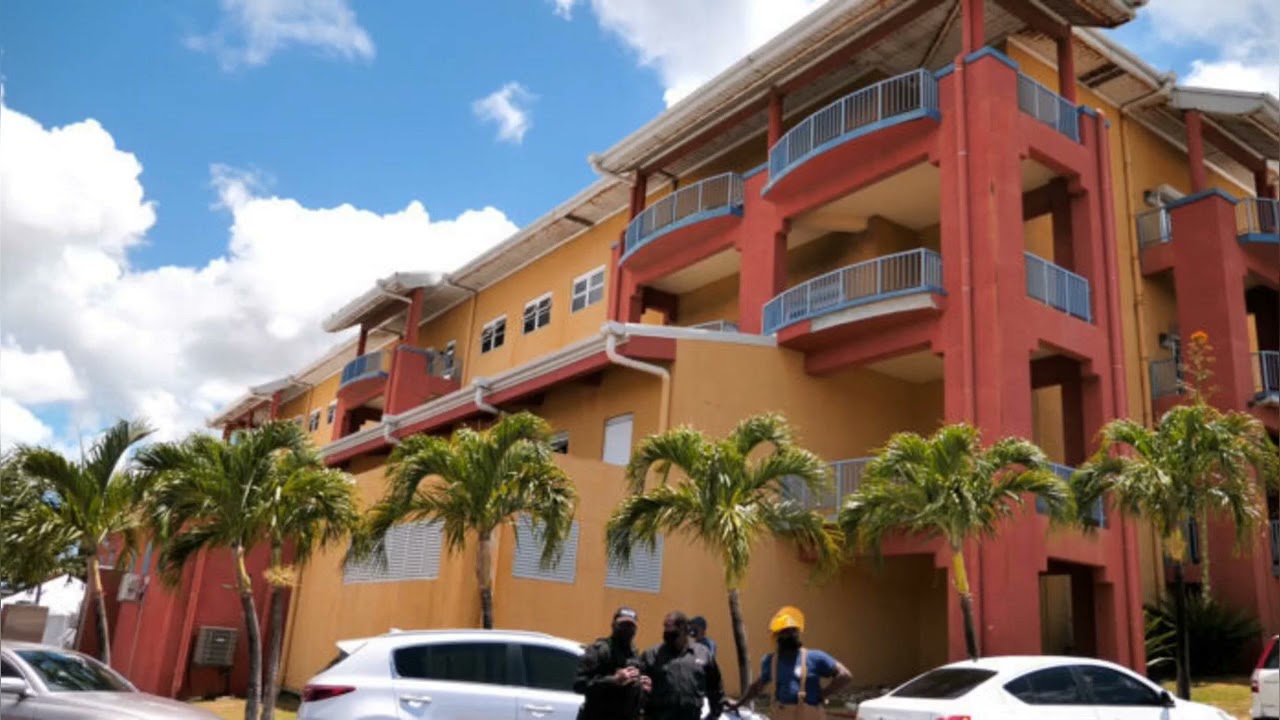This is a pig liver that’s gradually being transformed to look and act like a human one, part of scientists’ long quest to ease the United States’ transplant shortage by bioengineering replacement organs.
The ghostly form floating in a large jar had been the robust reddish-brown of a healthy organ just hours before. Now it’s semitranslucent, white tubes like branches on a tree showing through.
The first step for workers in this suburban Minneapolis lab is to shampoo away the pig cells that made the organ do its work, its color gradually fading as the cells dissolve and are flushed out. What’s left is a rubbery scaffolding, a honeycomb structure of the liver, its blood vessels now empty.
Next human liver cells — taken from donated organs unable to be transplanted — will be oozed back inside that shell. Those living cells move into the scaffolding’s nooks and crannies to restart the organ’s functions.
“We essentially regrow the organ,” said Jeff Ross, CEO of Miromatrix. “Our bodies won’t see it as a pig organ anymore.”
That’s a bold claim. Sometime in 2023, Miromatrix plans first-of-its-kind human testing of a bioengineered organ to start trying to prove it.
If the Food and Drug Administration agrees, the initial experiment will be outside a patient’s body. Researchers would place a pig-turned-humanlike liver next to a hospital bed to temporarily filter the blood of someone whose own liver suddenly failed. And if that novel “liver assist” works, it would be a critical step toward eventually attempting a bioengineered organ transplant — probably a kidney.
“It all sounds science fiction-ey but it’s got to start somewhere,” said Dr Sander Florman, a transplant chief at New York’s Mount Sinai Hospital, one of several hospitals already planning to participate in the liver-assist study.
“This is probably more of the near future than xenotransplantation,” or directly implanting animal organs into people.
More than 105,000 people are on the US waiting list for an organ transplant. Thousands will die before it’s their turn. Thousands more never even get put on the list, considered too much of a long shot.
“The number of organs we have available are never going to be able to meet the demand,” said Dr Amit Tevar, a transplant surgeon at the University of Pittsburgh Medical Center. “This is our frustration.”
That’s why scientists are looking to animals as another source of organs. A Maryland man lived two months after receiving the world’s first heart transplant from a pig last January — an animal genetically modified so its organs didn’t trigger an immediate attack from the human immune system.
The FDA is considering whether to allow additional xenotransplantation experiments using kidneys or hearts from gene-edited pigs.
Bioengineering organs is markedly different — no special pigs required, just leftover organs from slaughterhouses.
“That is something that in the long term may very likely contribute to the development of organs we can use in humans,” said Pittsburgh’s Tevar. He’s not involved with Miromatrix — and cautioned that the planned outside-the-body testing would be only an early first step.
The Miromatrix approach stems from research in the early 2000s, when regenerative medicine specialist Doris Taylor and Dr Harald Ott, then at the
University of Minnesota, pioneered a way to completely decellularise the heart of a dead rat. The team seeded the resulting scaffolding with immature heart cells from baby rats that eventually made the little organ beat, garnering international headlines.
Fast forward, and now at university spinoff Miromatrix sit rows of large jugs pumping fluids and nutrients into livers and kidneys in various stages of their metamorphosis.
Stripping away the pig cells removes some of the risks of xenotransplantation, such as lurking animal viruses or hyper-rejection, Ross said. The FDA already considers the decellularised pig tissue safe for another purpose, using it to make a type of surgical mesh.
More complex is getting human cells to take over.
SOURCE: The Associated Press
Make a donation to help support ABN, via PayPal: [email protected]. Follow Antigua Breaking News on Twitter @ABNAntigua and Instgram @AntiguaBreakingNews and on Facebook. Send us a message on WhatsApp at 1-868-704-9864 or email us at [email protected]
CLICK HERE TO JOIN OUR WHATSAPP GROUP FOR NEWS UPDATES.
CLICK HERE TO JOIN OUR WHATSAPP GROUP FOR NEWS UPDATES.
CLICK HERE TO JOIN OUR WHATSAPP GROUP FOR NEWS UPDATES.
CLICK HERE TO JOIN OUR WHATSAPP GROUP FOR NEWS UPDATES.
CLICK HERE TO JOIN OUR WHATSAPP GROUP FOR NEWS UPDATES.
CLICK HERE TO JOIN OUR WHATSAPP GROUP FOR NEWS UPDATES.
CLICK HERE TO JOIN OUR WHATSAPP GROUP FOR NEWS UPDATES.
CLICK HERE TO JOIN OUR WHATSAPP GROUP FOR NEWS UPDATES.




















